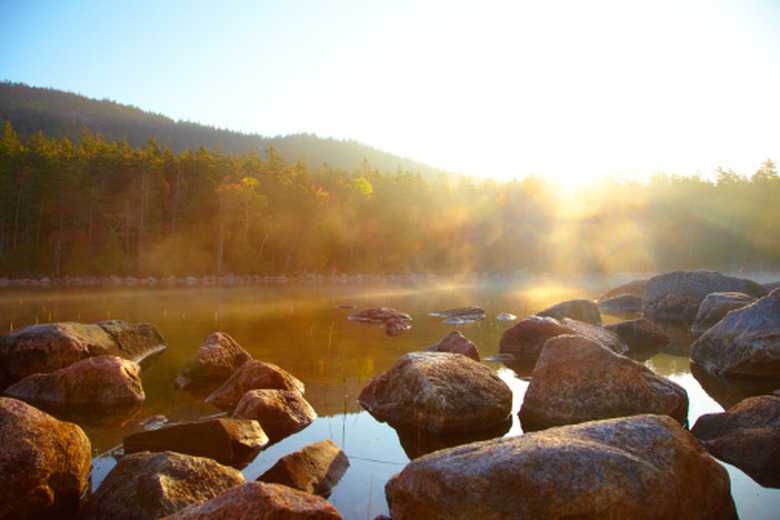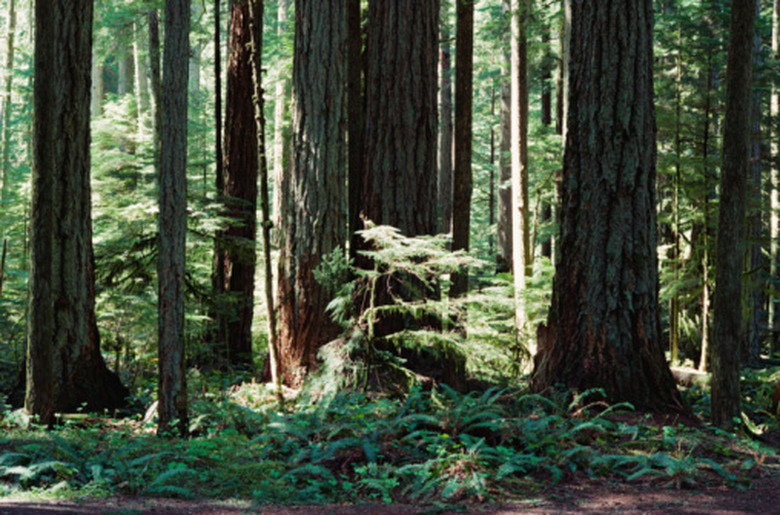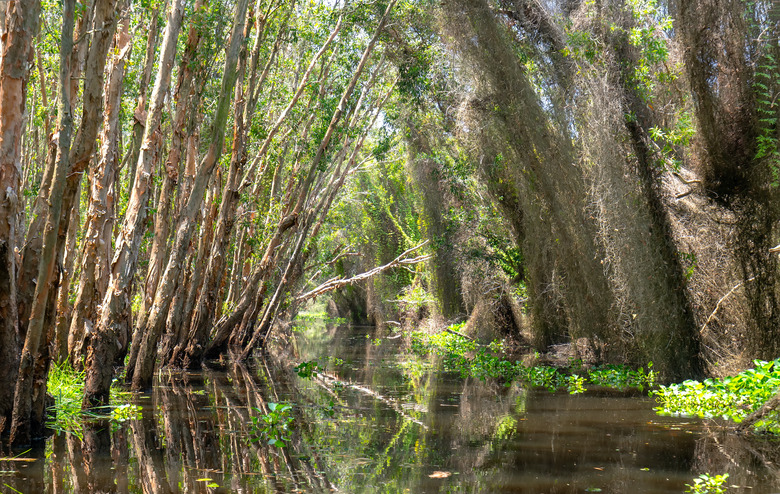An ecosystem is the dynamic interaction between living and nonliving things. The size of an ecosystem can be anything from one tree, to the Amazon rain forest, and even the entire Earth. The nonliving, or abiotic, elements of ecosystems are crucial as they provide important resources for the living things like habitat, food, minerals and light. In each ecosystem the living beings have co-adapted over time with the various types and amounts of nonliving elements to successfully meet their needs.
Sunlight

The sun’s light is an essential part of most ecosystems. Without the sun, there would be no photosynthesis in plants, a crucial process in the energy cycling in ecosystems. The sun also warms the atmosphere and evaporates water, allowing it to recycle through the ecosystem, and aids in the decomposition process.
Water

Another crucial nonliving element in ecosystems is water. Because living things are mostly made of water, they cannot survive long without it. Water is consumed, and is also the primary habitat in some ecosystems, like lakes and oceans. Even in deserts and other very dry ecosystems organisms have adapted ways to conserve and store water.
Soil

Soil serves many essential functions in ecosystems. It roots plants that not only prevent erosion, but also serve as food and habitat for other living beings. Soil itself is a habitat for many organisms, both microscopic and large. Made of minerals and decaying plant and animal matter, soil cycles important nutrients back to many of the living elements in the ecosystem.
Air

Living things must breathe. Animals inhale and exhale air, exchanging oxygen for carbon dioxide. Plants absorb and use carbon dioxide, and put oxygen back into the air. This give-and-take of elements is essential to life and mutually beneficial. The air is also part of the water cycle, holding water that the sun evaporates and releasing it back to the earth as rain and snow.

